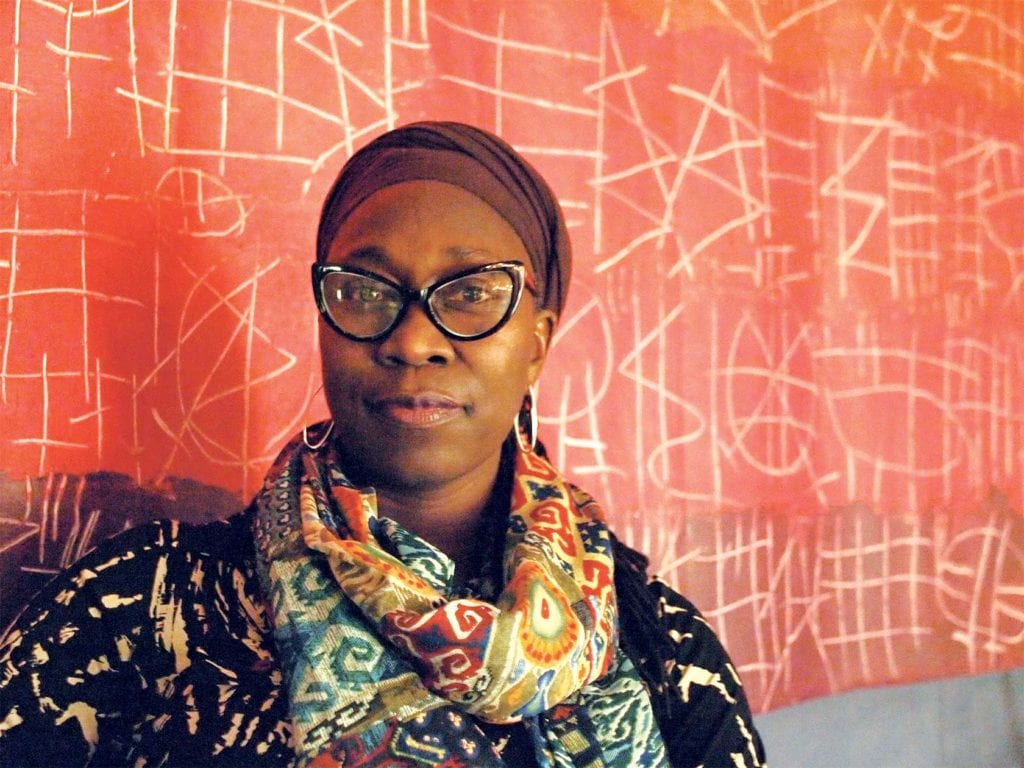A healing space grows in Four Corners
Community groups rally around The Guild

When Jhana Senxian, Founder and CEO of the Sustainability Guild, first set foot in 260 Washington Street in 2014, cars were still stored in the former auto repair shop. But she saw its potential as a hub for social enterprise, healing and wellness in the Bowdoin-Geneva and Four Corners communities.
Third Sector New England (TSNE) provided $2 million in funding to purchase the building and to do some needed repairs, Senxian sought to locate in the 12,000-square-foot building. TSNE, a Boston-based nonprofit sector capacity builder, also serves as fiscal sponsor for the Guild.
In January 2015, Senxian got an estimate from a contractor that it would cost $1.2 million to renovate a 2,000-square-foot section of the interior of the building, and it would take eight months. But with a team of local volunteers, Senxian did the renovations to the entire interior of the building at a cost of just $100,000.
“There’s more than $1 million of community sweat equity in this place,” she told the Banner last week.
The building was ready for move-in in January, 2015. Within weeks, Senxian began offering programming in the space.
The 24,000-square foot space is built into the Mount Bowdoin hillside that runs along Washington Street. While there are windows at the front, the back of the concrete building has a cave-like feeling. Large carpets cover much of the painted concrete floors. Two large, open-walled tents occupy the vast open spaces in the rear of the building, where yoga, qi gong and other movement-based classes are held. Several enclosed rooms offer space for meditation, classes and small-group meetings.
Yoga, healing arts, trauma services, support groups — Senxian and other community residents have led classes and workshops tailored to what people in the community asked for and were willing to offer.
“We curate healing retreats,” Senxian told the Banner. “We create the whole experience for people.”
Several neighborhood trauma response teams — groups set up by the city that typically work with survivors of homicides and other violent incidents — regularly meet in the space. Among those regularly using the space are support groups for women survivors of abusive relationships, families experiencing homelessness and members of refugee communities.
Among the many healing modalities offered for free by community-based practitioners are counseling, sound healing and reiki.
To illustrate the work going on at 260 Washington St., Senxian points to Michael Massey, a practitioner known as Yoga Mike, a former semi-pro football player who is working with his third cohort in a teacher training class at The Guild. When Massey began offering free classes at The Guild, the organization helped him acquire equipment he needed to start his business.
The Guild partners with organizations including Boston Medical Center, the Massachusetts Housing Investment Corporation and local community development corporations to offer yoga and other health and wellness programs. While Massey’s classes at The Guild are free, he receives fees for classes he holds through the partner organizations.
From the outset, TSNE agreed to transfer ownership of the building to The Guild once the nonprofit met a set of benchmarks, including having four months of cash-on-hand and remaining in good standing. Over the past two years, Senxian said, the Guild met its benchmarks, but TSNE kept extending the deadline for the transfer of the building.
Additionally, the TSNE board in January sent a letter to Attorney General Maura Healey asking that her office investigate the viability of The Guild. After a 10-month investigation, Healey’s office found that there was no need to intervene in the transfer of 260 Washington Street to The Guild.
In November, TSNE called for a community meeting to discuss the current and future use of the building.
“TSNE acknowledges that an engagement process with the community was not done when the building was originally purchased,” the organization wrote in a Nov. 15 document sent to local community groups. “TSNE is honoring that community process now, at this important juncture in time, to ensure that the 260 Washington Street space is meeting the needs of the Bowdoin-Geneva and Four Corners neighborhoods.”
More than 300 people showed up for a November community meeting at 260 Washington Street to voice support for the Guild, according to an article in the Dorchester Reporter.
“The work that is being done here is not being done anywhere else in the city,” said one resident quoted in the Reporter.
On Dec. 3, a coalition of community organizations from Dorchester, Roxbury and the South End sent a letter to the TSNE board asking that it meet with local elected officials to set a date for and coordinate transferring 260 Washington Street to The Guild. The letter was signed by neighborhood groups, including the Greater Four Corners Action Coalition and Project RIGHT, local businesses and nonprofits as well as neighborhood trauma response teams.
Senxian noted that many in the local community have volunteered their time in rehabilitating the building and the adjoining acre of wooded land along Washington Street.
“It’s been a labor of love for people, and they respect and protect this space,” she said.
Senxian acknowledges it may be difficult for traditional funders and nonprofit organizations to understand The Guild’s community-driven focus on healing.
“We’re creating a culture of love and healing,” she said. “Many funders don’t understand us. But local families understand what we’re doing. We treat people with love and respect. We see people as whole and working toward regaining their wholeness.”








